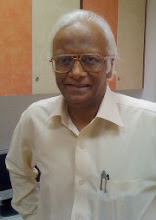A TALE OF TWO NURSES
SUNNY THOMAS
Ever heard of Super Specialty Murder? Murder just a week
before the centenary of shifting the Indian capital from the cultural capital
of India
That a minor fire that broke out in the basement, which
could have been extinguished in a matter of ten minutes by the fire brigade,
was not even reported for full one hour and a half but was played around by
four watchmen shows the abysmal state of management of AMRI Hospital in
Kolkata. The pertinent point is it was only a minor fire that could have caused
no casualty at all. Yet the hospital with no semblance of administration
allowed it to turn it into an inferno taking a toll of over 90 lives!
Obviously, fear psychosis ruled the hospital staff and the watchmen were
mortally scared of the hospital authorities that they tried to hush up the fire
and even attempted to do what they were not qualified to do.
What happened in Kolkata is not an exception. Medical
practitioners across the country have become notorious businessmen, with an eye
to the purse rather than an eye to the patient’s health. Any doctor who sends a
patient to an MRI scan centre in Delhi
In one of the most expensive and advertised of hospitals in
Delhi, the parents of a youth who fell into a coma after a road accident were
appalled that the doctors were persuading them to sell their son’s kidney to
reduce the hospital bill rather than trying to save his life!
Doing a reporting assignment during the heydays of the
Nithari killings, a student stumbled upon the most scandalous revelation: the
doctor, whom media nicknamed ‘Dr Kidney Kumar’ was spotted very often with the
controversial nurse parking his van in front of the notorious house into which
young girls were enticed and later raped and murdered, in Noida, East Delhi.
The source of the story was the press-wallah’s
wife, who stayed right opposite. The story could not be published anywhere
else, except in the lab newspaper of Times School of Journalism, because the
entire story hinges on the statement of one person, who could re-track her
version in a court of law for whatever reason; and the media house that
publishes the story could end up paying damages to the tune of Rs 50 crore,
which it can do without. (So Kumar Sambhav, the TSJ student, now a prized
correspondent with Down to Earth,
learned early in his career that it is not enough to discover the truth to
report!).
Robin Cook’s medical thrillers expose the games doctors
play in a world of unethical networking disguised in the fame and reputation of
hospitals. His novel Coma that shot him into fame describes one such
incident:
Four medical students enter the freighting world of medicine
in February 1976. Three of the medical students are male and one is female.
During this time it was very hard for a female to succeed as a doctor. It is
even harder for Dr. Susan Wheeler to succeed when she uncovers a horrifying
deception. The deception she uncovers is that a select group of senior doctors
at Memorial Hospital
To come back to the AMRI story: Driven by greed and avarice,
the management flouted all safety norms; they turned the car-parking into a
store house where not only inflammable drugs but even gas cylinders were dumped;
all emergency exits meant for the safety of patience in case of fire were
blocked. Only the previous day was there a minor fire mishap, which should have
alerted the authorities but the trigger-happy management would learn no such
lessons. Instead, they suspended the watchman who called the fire brigade and
averted a mishap of similar magnitude, warning anyone who ventures to act in
public interest. So the inevitable happened!
In this sordid drama of greed and avarice, emerges the story
of supreme sacrifice: two tender nurses from God’s own country could not save
the life of a ninth one because they themselves were consumed in the inferno.
While doctors and paramedical staff and the watchmen who could have saved some
lives took to their heels, the lesser privileged slum-dwellers and a man with
no limbs, Debasis Chatterjee (37) along with P K Vineetha and Remya Rajappan,
the two nurses, scripted the saga of exemplary courage. Chief Minister Mamata
Banerjee indeed stood by the relatives of the victims and earned their
gratitude.
In A Tale of Two Cities,
Charles Dicken expounds the meaning of true love in the noble deed of
Sydney Carton in exchanging the prison cell (and guillotine) of
Charles Darnay, whom his heart-throb Lucie Manette loves. Dickens demonstrates
how love transforms the most worthless man into a precious gem of literary
characters. The immortal beauty of Shakespeare’s Romeo and Juliet lies in the fact that the spring of love comes up
amidst an ocean of hatred. There is hope for human civilization as long as
there exist the rarest of gems like Vineetha, Remya and Debasis.
A memorial in honour of these martyrs at the very site to
inspire the youth of the country is the most fitting thing for a government to
do, while the nation salutes these immortal souls!


No comments:
Post a Comment